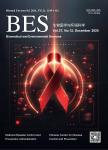Influence of Legislation in Toxicology
Influence of Legislation in Toxicology^1作者机构:Chief Advisor in Toxicology Ministry of Health 19 Moerkhoej Bygade DK-2860 Soeborg Denmark
出 版 物:《Biomedical and Environmental Sciences》 (生物医学与环境科学(英文版))
年 卷 期:1989年第2卷第1期
页 面:30-35页
核心收录:
学科分类:10[医学]
主 题:chemicals permit disciplines restrictive authorities poisoning sophisticated forensic worry maybe
摘 要:The influence of toxicology on legislation is quite clear in countries where chemicals are regulated by the authorities. There is normally a toxicological evaluation—in addition to other considerations—behind sales and use permissions and the levels that are accepted in food, air, water, etc. How does legislation affect toxicology? If there is no legislation, then clinical and forensic toxicology will be the most used toxicological disciplines (accidents and other cases of poisoning). The more sophisticated and restrictive the legislation becomes, the more toxicology is used not only to permit the use of chemicals but also to ban them. In addition, legislation for the protection of experimental animals has a profound influence in toxicology and accelerates the use of in vitro and other alternative methods. This paper discusses whether countries in the developed world are overdoing it, thereby maybe hampering the essential use of chemicals in the developing countries. 1989 Academic Press, Inc.



